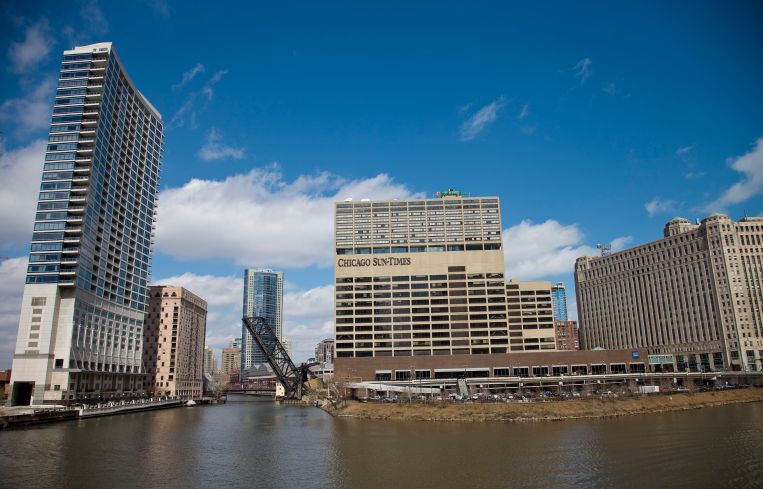CMBS Delinquency at Highest Level Since 2021
By Marc McDevitt July 10, 2023 3:51 pm
reprints
The CRED iQ delinquency rate for CMBS for June 2023 increased for the fifth consecutive month to 4.4 percent. The delinquency rate was 20 basis points higher than the prior month’s rate of 4.2 percent, equal to a 5 percent increase.
CMBS delinquency is now at its highest level since the end of 2021. Over $4 billion in aggregate CMBS debt was reported as newly delinquent as of June, and more than 80 percent of newly delinquent loans by outstanding balance was attributed to maturity defaults or refinancing issues.
The delinquency rate is equal to the percentage of all delinquent specially serviced loans and delinquent non-specially serviced loans for CRED iQ’s sample universe of $600-plus billion in CMBS conduit and single-asset single-borrower (SASB) loans. CRED iQ’s special servicing rate, equal to the percentage of CMBS loans that are with the special servicer (delinquent and non-delinquent), increased month-over-month to 6.21 percent, from 6.01 percent.
The special servicing rate has climbed in five out of six months so far in 2023. Aggregating the two indicators of distress – delinquency rate and special servicing rate – into an overall distressed rate (delinquencies plus special service percent) equates to 6.56 percent of CMBS loans that are specially serviced, delinquent, or a combination of both.
The May distressed rate was equal to 6.43 percent, which was 13 basis points lower than the June distressed rate. The month-over-month increase in the overall distressed rate mirrors increases in the delinquency and special servicing rates. Distressed rates generally track slightly higher than special servicing rates as most delinquent loans are also with the special servicer.
By property type, distress in the office sector continued to build in June. The office delinquency rate increased to 4.6 percent, which compared to 3.98 percent as of May 2023. The month-over-month surge of 62 basis points in office delinquency was equal to a 16 percent increase.
Comparing data across the trailing 12 months, the delinquency rate for office is nearly 2.5 times higher than July 2022. The natural progression of long- to intermediate-
term rolling leases coupled with ongoing refinancing difficulties at loan maturity have caused the velocity of new delinquencies to accelerate during the first half of 2023.
One of the largest contributors to the spike in office delinquency during June was the maturity default of a $691 million mortgage secured by a 2.1 million-square-foot office portfolio in Rosslyn, Va. In addition to the senior mortgage, financing for the Rosslyn Office Portfolio also included $150 million in mezzanine debt.
The floating-rate Rosslyn Office Portfolio loan transferred to special servicing shortly after its initial maturity date in May. The loan was structured with three one-year extension options, but the borrower was constrained in its ability to execute an extension and refinancing was even less plausible.
The delinquency rate for lodging properties exhibited a one-month surge similar to that in the office sector. Hotel delinquency for June measured at 5.34 percent, up from 4.55 percent in May.
The increase in June is attributed to several untimely maturity defaults, including Holiday Inn – Sixth Avenue, a 226-key hotel in Manhattan that secures a $72.8 million mortgage. The loan failed to pay off at maturity, but the borrower requested a two-year extension.
Rounding out delinquency rates for remaining property types, retail delinquency (7.37 percent) declined from May to June. Multifamily delinquency (1.87 percent) and industrial delinquency (0.33 percent) were flat month-over-month while self-storage delinquency was negligible.
From the perspective of special servicing rates, distress in the office sector maintained its position as the dominant theme. The office special servicing rate as of June was 7.95 percent, which represented a 31 percent increase from May’s office special servicing rate of 6.08 percent.
Maturity defaults and refinancing risk are forces that need to be worked through as both of these reasons were the primary citations for newly transferred office loans. A high-profile example included a $310 million mortgage secured by the 1.3 million-square-foot River North Point office property in Chicago.
Aside from the office sector, the special servicing rate for retail loans declined to 9.95 percent, compared to 11.04 percent as of May. The special servicing rate for loans secured by lodging properties (6.33 percent) also declined compared to May. The special servicing rates for multifamily (4.31 percent) and industrial (0.47 percent) both exhibited month-over-month increases. There was no self-storage specially serviced inventory.
Marc McDevitt is senior managing director at CRED iQ



